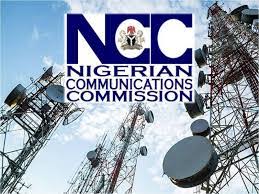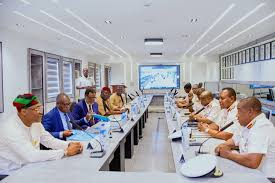Maritime
Navy Seizes 265 Bags Of Cannabis
The Commander, Nigerian Navy Ship (NNS) Beecroft, Commodore Rafiu Oladejo, has disclosed that the service seized a total of 265 bags of cannabis sativa in 2024 and handed over to the appropriate authorities.
He also said the service arrested 67 stowaways in the same year from different overseas bound ships, with the most recent being eight persons found onboard MSC KATYANI on January 20th, 2025.
The Commander stated this during his send-off parade as the Base Commander, held at NNS Beecroft parade ground, Apapa, Lagos.
“193 bags of cannabis sativa weighing 7,720kg was intercepted at Badagry in March 2024, and 72 bags of the same substance weighing 2,880kg at Ilashe in October 2024.”
“Furthermore, over 18 large wooden boats laden with foreign parboiled rice, petroleum products and contraband items were arrested and handed over to appropriate prosecuting agencies”, he said.
The Commander said these efforts and the operational activities of the Base were conducted in line with the Chief of Naval Staff (CNS), Vice Admiral Emmanuel Oghalla’s Strategic Directive 2023- 2026.
He said the directive was tailored toward the attainment of Western Naval Command’s key operational priorities and ensuring security and prosperity of the nation.
“Under my command, NNS Beecroft played a crucial role in promoting maritime safety and security as it promptly responded to several distress calls from mariners.
“The most recent being the search and rescue of MV Mamaluck offshore Lekki on January 29, 2025.
“Also, the Base remained unrelenting in its efforts at curtailing the menace of sea robbery, illegal oil bunkering, pipeline vandalism, smuggling and other crimes within the Base’s area of operations”, Oladejo said.
He further said the Base provided armed escorts to vessels and maintenance of static patrol of key points and vulnerable points such as the Pipelines and Products Marketing Company (PPMC) terminal at Atlas Cove.
“These efforts have continued to project the Base positively in reaffirming the vision of the CNS”, the Commander said.
Oladejo stated that he ensured that personnel’s welfare was given due attention because he understood that motivation impacted positively on operations.
“Accordingly, I ensured that all financial entitlements were paid in good time and made concerted efforts at improving nutritional standards.
“Additionally, the Divisional System was reinvigorated as more attention was dedicated to ensuring high moral values for improved professional performance”, he said.
The Commander continued that his tenure reactivated defective medical equipment in the Base’s sickbay and ensured that the facility was regularly restocked for better health care.
“We equally ensured that leaves and passes were favourably considered while measures were taken to sustain operational efficiency.
“Due attention was also paid to all Nigerian Navy Welfare schools under the Base as we ensured that dilapidated classroom structures were rebuilt, equipped and well maintained.
“It is gratifying to note that these initiatives have helped to address the welfare needs of personnel and their families”, he said.
Oladejo noted that successes recorded during his tenure could not have been achieved without the support of other security and law enforcement agencies and maritime stakeholders.
“For instance, our collaboration with the Nigerian Army, Nigeria Police, among other agencies, were pivotal in the arrest, investigation and prosecution of various criminal suspects.
“Equally, liaison with the Nigerian Ports Authority (NPA) ensured the relocation of some arrested vessels which hitherto constituted navigational hazards to a Bay within the Badagry Creek”, he explained.
The Commander said the NPA also sustained its support to the Base in ensuring unhindered availability of tug services and berthing spaces for ships of the Western Fleet.
“Furthermore, the collaboration with oil companies, container terminals, truck parks and the NPA has led to improved road maintenance and better management of the traffic flow within Apapa and environs”, he said.
Oladejo appreciated the patronage and support of private maritime logistics and security companies and other service providers in their effort to secure Nigeria’s maritime Environment.
He assumed duty as the NNS Commander on March 14, 2024 and has been succeeded by Commodore Paul Nimmyel.
Maritime
NCC Announces Telecoms Facilities Protection Measures

Maritime
Bureaucracy, Relationship Gaps, Bane Of Maritime Safety Investigation – NSIB

Maritime
UNDP, REA Partner On Clean Energy Transition

-

 Nation2 days ago
Nation2 days agoAccolades, Fanfare As Ogbakor Ikwerre President General Celebrates 80th Birthday
-
News2 days ago
Stop politicising Niger Delta’s plight over personal interest, Ex-militant warns Ijaw youths
-
News2 days ago
Keep faith with Tinubu’s Renewed Hope Agenda – NOA begs Nigerians
-

 Niger Delta3 days ago
Niger Delta3 days agoBayelsa Tasks Security Agencies On Vigilance Over Waring Communities
-
Featured2 days ago
Rivers LG Poll: APC Wins 20 chairmanship seats, PDP Clears Three
-
News2 days ago
Cleric Condemns Increasing Theft in God’s House
-
News2 days ago
Okpebholo, Edo Speaker mourns ex-IGP, Arase
-
News2 days ago
Ojulari: CNPP, civil society groups demand judicial probe into NNPCL

